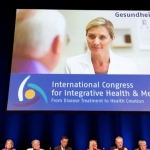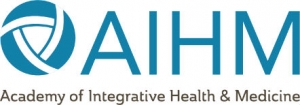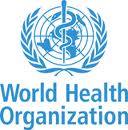Integrative Health Group Makes Global Declaration
June 23, 2016
 by John Weeks, Publisher/Editor of The Integrator Blog News and Reports Participants at a recent conference in Germany are promoting what they are calling the Stuttgart Integrative Health & Medicine Declaration. This Declaration is the first of its kind and is backed by the Academy of Integrative Health and Medicine (AIHM). While the Declaration does not include a specific action plan, it does urge action from “governments, the WHO, and professional organizations” to promote use of the integrative model to manage global health issues. The declaration has been posted here at Change.org and has over 1000 supporters at the time of this writing. Work on the Declaration began inside the AIHM. Leadership in the organization’s plan to go global with their mission has been led by long-time integrative medicine leader David Riley, MD and Tabatha Parker, ND, the AIHM director of education. Riley has extensive experience in consulting internationally. Parker is a co-founder of Natural Doctors International, through which she is involved with PAHO, and is a leader of the naturopathic profession’s effort to gain WHO recognition.
by John Weeks, Publisher/Editor of The Integrator Blog News and Reports Participants at a recent conference in Germany are promoting what they are calling the Stuttgart Integrative Health & Medicine Declaration. This Declaration is the first of its kind and is backed by the Academy of Integrative Health and Medicine (AIHM). While the Declaration does not include a specific action plan, it does urge action from “governments, the WHO, and professional organizations” to promote use of the integrative model to manage global health issues. The declaration has been posted here at Change.org and has over 1000 supporters at the time of this writing. Work on the Declaration began inside the AIHM. Leadership in the organization’s plan to go global with their mission has been led by long-time integrative medicine leader David Riley, MD and Tabatha Parker, ND, the AIHM director of education. Riley has extensive experience in consulting internationally. Parker is a co-founder of Natural Doctors International, through which she is involved with PAHO, and is a leader of the naturopathic profession’s effort to gain WHO recognition.  The first AIHM move on their global agenda was to connect with an organization of anthroposophical doctors in Germany and with the Institute for Functional Medicine for a conference that was held June 9-11, 2016 in Stuttgart. What later became the declaration was first drafted inside the AIHM, and, according to the notice, was then reportedly endorsed by the Stuttgart Congress. The Declaration begins with a look at the global challenges for regular medicine in dealing with the rise of chronic disease. It then provides an extended definition of integrative medicine including reference to it being “evidence-informed integration of conventional biomedicine with traditional and complementary medicine (T&CM).” The authors present the integrative health and medicine field as presently able to offer models of integrative delivery across multiple specialties. The Declaration notes that, while more research is needed, “there is growing, and in many cases good, evidence on efficacy, including quality of life, safety and cost-effectiveness of traditional and complementary medicine, integrative health and medicine and the integrative care model.”
The first AIHM move on their global agenda was to connect with an organization of anthroposophical doctors in Germany and with the Institute for Functional Medicine for a conference that was held June 9-11, 2016 in Stuttgart. What later became the declaration was first drafted inside the AIHM, and, according to the notice, was then reportedly endorsed by the Stuttgart Congress. The Declaration begins with a look at the global challenges for regular medicine in dealing with the rise of chronic disease. It then provides an extended definition of integrative medicine including reference to it being “evidence-informed integration of conventional biomedicine with traditional and complementary medicine (T&CM).” The authors present the integrative health and medicine field as presently able to offer models of integrative delivery across multiple specialties. The Declaration notes that, while more research is needed, “there is growing, and in many cases good, evidence on efficacy, including quality of life, safety and cost-effectiveness of traditional and complementary medicine, integrative health and medicine and the integrative care model.”  The Declaration continues by noting that while “some countries are making significant progress in integrating T&CM into their healthcare system … many countries are lagging behind despite several resolutions by the World Health Assembly - the supreme decision-making body of the WHO - urging them to do so.” The context for action is the United Nations’ 2030 Sustainable Development Goals. The Declaration continues with a pledge to commit to advancing the integrative model then presents 7 bullets in requests to governments, including the following two:
The Declaration continues by noting that while “some countries are making significant progress in integrating T&CM into their healthcare system … many countries are lagging behind despite several resolutions by the World Health Assembly - the supreme decision-making body of the WHO - urging them to do so.” The context for action is the United Nations’ 2030 Sustainable Development Goals. The Declaration continues with a pledge to commit to advancing the integrative model then presents 7 bullets in requests to governments, including the following two: - To recognize integrative health and medicine as a whole society approach that will help to reach the Sustainable Development Goals;
- To include integrative T&CM into national health service delivery and self-care, as agreed in the WHO Traditional Medicine Strategy 2014-2023 and several World Health Assembly resolutions.




















SHARE